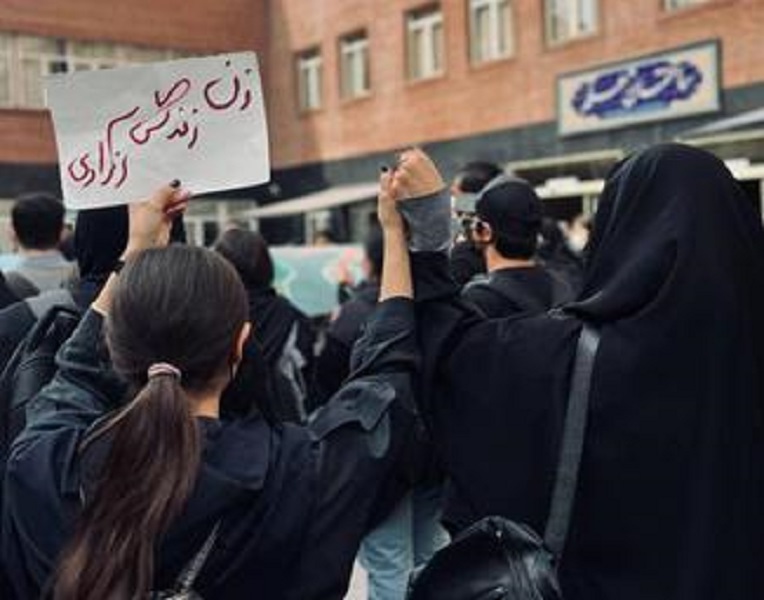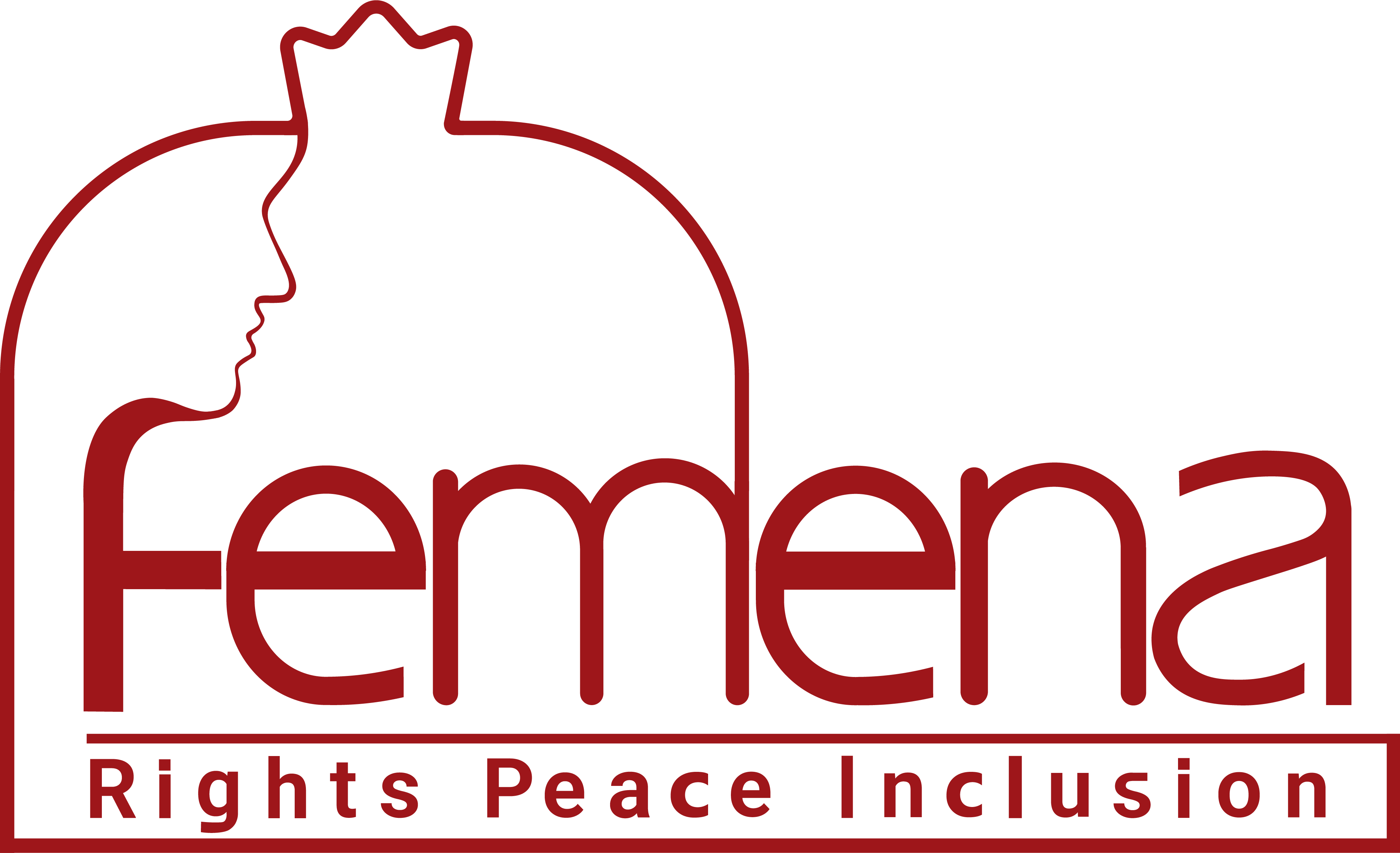
As women in Iran continue defying the compulsory laws of hijab as a daily act of resistance, the pressure on student groups which serve as one of the significant centers of resistance has intensified.
Since the onset of the mass protests in Iran in September 2022, students have remained among the groups persistently challenging the crackdowns on the Women, Life, Freedom movement. They employ various methods, such as holding rallies, engaging in performances, composing protest songs, and other forms of resistance. However, these peaceful protests have inflicted significant consequences upon numerous students. Their demands for justice have been met with brutal violence.
Since the start of the protests, human rights groups, including the Follow-Up Committee of Iran, have documented the arrest of at least 720 students. Intimidations against these students persist manifesting in prison sentences, academic suspension, internal exile, fines, and other disciplinary measures. Numerous student activists have been deprived of dormitory access, and tensions within universities continue to escalate.
The students of Tehran University of Art stood among the prominent student groups leading the Woman, Life, Freedom movement. Their poignant songs and anthems served as a revitalizing force and a source of inspiration for the protesters on the streets. Iranians from diverse backgrounds continuously echoed these powerful melodies during protests and also across social media platforms.
In a recent development last week, female students at Tehran University of Art received a text message introducing new regulations that mandate the adoption of a more stringent form of hijab at all times. The new regulation has triggered alarm amongst the students as throughout the past two decades and under the supervision of different university presidents with differing political views, such strict regulations had never been imposed. Previously, any form of head covering was deemed acceptable on campus.
On June 14, 2023, more than 50 students of the University of Arts organized a sit-in protest within the campus premises in response to the newly imposed restrictions. The protest persisted until the following day. During the sit-in, university security threatened the students with arrest, while the university officials went so far as to deny students access to water and food. Subsequently, on Saturday, June 17, several student news sources reported that at least ten students had been arrested by security forces.
Later the news confirmed the release of all previously arrested students. However, despite their release, the unrest persisted with students from 15 additional universities joining the protest. These students expressed solidarity with their counterparts from the University of Arts and issued statements in their support.
In response to the persistent intimidations, arrests, and detentions carried out by the security forces, the statement released by students at the University of Arts garnered significant attention on Iranian social media networks and particularly these lines: “Nearly a year has passed since our unity has formed. We have only one word to convey to you: No! Despite the deprivation of water and the alarming violence directed towards our fellow students who participated in the sit-in at the National Garden campus in support of our call for equality, we reiterate that there is no turning back.”
Over the past two months, a growing number of women have taken to the street, choosing not to adhere to the conventional hijab as a means of resistance against the increasingly strict regulations imposed upon their freedoms. Unfortunately, the response to these peaceful acts of defiance has been the imposition of additional restrictions. The newly introduced regulations entail fines, seizure of vehicles, the deprivation of social rights and freedoms, as well as termination of employment and education, all aimed at coercing protesting women into compliance with the mandatory hijab laws.
The imposition of new policies appears to be a preemptive measure to prevent incidents such as the tragic death in custody of Mahsa Amini. However, there is a notable absence of remorse regarding the government’s stance on enforcing mandatory Hijab. Through the implementation of such policies, the government intends to marginalize women who choose not to adhere to compulsory hijab, denying them access to services, fostering an unsafe public environment. Consequently, these women are at risk of further suffering, transforming them into marginalized citizens who are systematically excluded from public and social spaces.
- Femena stands in solidarity with Iranian women and especially students at the Tehran University of Art and other university students who have endured the brunt of recent attacks by security forces.
- We call on the international community, including governments and the UN system and especially women and human rights organizations, to follow developments in Iranian universities and raise the profile of those arrested and facing disciplinary actions as well as policies that aim to exclude women from public life, for not observing the mandatory hijab.
- Femena also calls on governments around the world to use diplomatic tools at their disposal to express concern about the continued and systematic crackdown against Iranian women and University students, including the recent pressures on students at Tehran University of Art, and push the Iranian government to end its systematic policy of social exclusion of women, who choose to have control over bodies and their dress.

